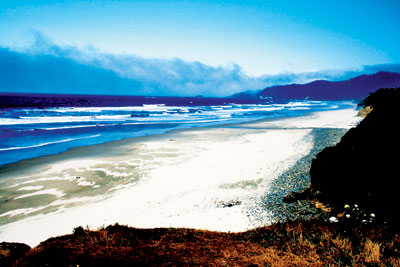All Nonfiction
- Bullying
- Books
- Academic
- Author Interviews
- Celebrity interviews
- College Articles
- College Essays
- Educator of the Year
- Heroes
- Interviews
- Memoir
- Personal Experience
- Sports
- Travel & Culture
All Opinions
- Bullying
- Current Events / Politics
- Discrimination
- Drugs / Alcohol / Smoking
- Entertainment / Celebrities
- Environment
- Love / Relationships
- Movies / Music / TV
- Pop Culture / Trends
- School / College
- Social Issues / Civics
- Spirituality / Religion
- Sports / Hobbies
All Hot Topics
- Bullying
- Community Service
- Environment
- Health
- Letters to the Editor
- Pride & Prejudice
- What Matters
- Back
Summer Guide
- Program Links
- Program Reviews
- Back
College Guide
- College Links
- College Reviews
- College Essays
- College Articles
- Back
Challenge to Conserve
Due to rapid growth in population across the globe, water is becoming more precious every day. However, as we cannot change the birthrates, we must take care to use our water resources in the most efficient way possible. To best do this, we have to look to where the majority of our water is going. In Utah, 81.1 percent of our water usage goes to irrigation. Agriculture is an important and necessary use for water, but more can be done to increase the efficiency and conservation of our irrigation resources. In this essay I would like to remark on the misuse of our irrigation water, the solutions to consider, and how to make it happen.
Much of the misuse of water in farming can be prevented. I have observed local farmers leaving sprinklers to water their crops in one place, all day, rain or shine. There are also instances when these sprinklers are left on all night during cooler months, resulting in fountains of frozen water, very beautiful, but also very harmful to pipe systems and conservation. About 40 percent of Utah’s 1.3 million irrigated acres are watered with sprinklers, which means that the other 60 percent are watered by other means, such as flood irrigation. This is less efficient than sprinkler systems, as the average efficiency of ground irrigation is only 50 percent. For every acre-foot of water supplied to a typical surface irrigation system, less than 1 1/4 tons of alfalfa or about 30 bushels of wheat is the expected harvest. In contrast, the expected harvest with an effective sprinkler system is about 1 3/4 tons of alfalfa and 46 bushels of wheat. We must also consider how the water is transported, through canals and pipelines. An unlined canal means that a trench has been dug for the water to run through, and therefore water soaks into the ground, lessening the amount of water being used for actual irrigation.
There are many methods that can be adopted to increase the conservation of our irrigation water. It would be advantageous to line canals and ditches carrying water with concrete to prevent water seepage. If possible, it would be even better to convert from canals to pipes, as they prevent seepage and evaporation. By using sprinkler systems in place of flood irrigation, crops would use less water because sprinklers apply water uniformly and produce more for each acre-foot of water. This effect can become even more profitable by using lower-pressure watering systems. An efficient sprinkler system is the result of good system design, proper irrigation scheduling, careful operation, and timely maintenance. Another idea to consider would be rain sensors and timers set to only water at certain points in the day. It would also be useful to consider cost-sharing programs that can improve farm water delivery systems. By creating more reservoirs, runoff from the mountain snow and rainstorms could be collected and used for crops, instead of absorbing back into the ground.
If the conservation of our irrigation water is to be pursued, it would be ineffectual to appeal to the common population. Those who need the greatest convincing are local farmers. This would be easy if conserving water economically benefited farmers. Having efficient irrigation systems would not only increase crop yield, it would cut the amount of water used over time. As water is becoming more limited and costly, these systems would greatly increase farm profitability. More and more farmers are being asked to cut on water to supply domestic demands, and this would save them money and convince them to set timers on their irrigation systems, so water is not being continually wasted. As more reservoirs are created, and better transportation provided for water, those using it will have better access and be more inclined to conserve.
The use of our irrigation water may not seem the all-consuming direct challenge to conserving our water resources. However, we have to accept the fact that our population is growing, and so is the demand for water. Therefore, changes we can make to increase the efficiency of water usage will greatly relieve the urgency of the issue at hand. Growing crops has always been vital to society and it is necessary to use the water required for that purpose. When we achieve that purpose efficiently while saving our resources, we have succeeded. It's the small fixes that make the big difference.

Similar Articles
JOIN THE DISCUSSION
This article has 0 comments.
